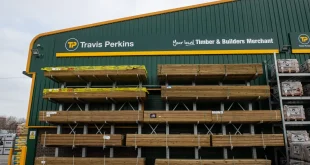Mankind is divided into rich and poor,
into property owners and exploited;
So the Budget then. Not what you’d call a rip-roaring listen was it? It seemed to me to be missing something. Oh yes, that was it, the ‘f’ word. As in fiscal (deficit). As in how are we going to fill the black hole? (see earlier rant on this topic) I suppose this close to an election, only a fool would tell us exactly how bad it may have to get but still. The deficit still needs to be paid down and I’m rather of the opinion that the growth forecasts for next year and beyond are a tad on the optimistic side.
A few million quid here and there on stamp duty just isn’t going to cut it I’m afraid.
And on that note, I saw a post this morning which seemed to think that cutting stamp duty for first time buyers would please up to one million voters. Always assuming that first time buyers – who tend to be the younger members of society – would both to vote in the first place. Aren’t we always hearing about voter apathy and how disenfranchised the young feel?
Anyway, this stamp duty thing is only an extension of the current suspension (I simply can’t get my head round calling it a ‘holiday’,) not a permanent abolition. It will only be for two years, and although what Darling has put in place to pay for it will be permanent – the 5% levy on stamp duty on homes over £1m.
Now a £1m property has different connotations depending where you live – in economic as well as geographic terms. Put a search into property website RightMove for £1m houses within 40 miles of Waterloo station and it throws up a list running into thousands. Put the same search in for properties within 40 miles of Birmingham city centre and the list is in the hundreds, ditto Leeds and Manchester. It’s for precisely that reason that Lib Dem leader Nick Clegg doubled the limit at which Vince Cable’s ‘mansion tax’ would be levied, in the unlikely event of a Lib Dem victory.
In the short term, the move will probably have the effect of bringing down asking and selling prices at that sector of the market to just under the stamp duty threshold. On the other hand, no stamp duty below £250,000 at the bottom end will undoubtedly have the effect of keeping prices below that level until the scheme finishes. Not necessarily a bad thing in itself.
I know from talking to estate agents that the earlier suspension of stamp duty did boost the housing sector, especially towards the end of it. So, with a bit of luck, we should start to see some movement at the first time buyer level. But this will only happen if there is the finance available to fund purchases.
Getting £2,500 knocked off your final bill is all very helpful for a first time buyer but it won’t matter if you can’t stump up a minimum of £25,000 to get the process moving in the first place. And if the non-first time buyers can’t get the mortgages to move up then first time buyers will have nothing but new properties to buy. Which is good for the housebuilder sector, but less good for those reliant on the RMI market. Like merchants.
 Builders Merchants Journal – BMJ Publishing to Builders Merchants and the UK merchanting industry for more than 95 years
Builders Merchants Journal – BMJ Publishing to Builders Merchants and the UK merchanting industry for more than 95 years



